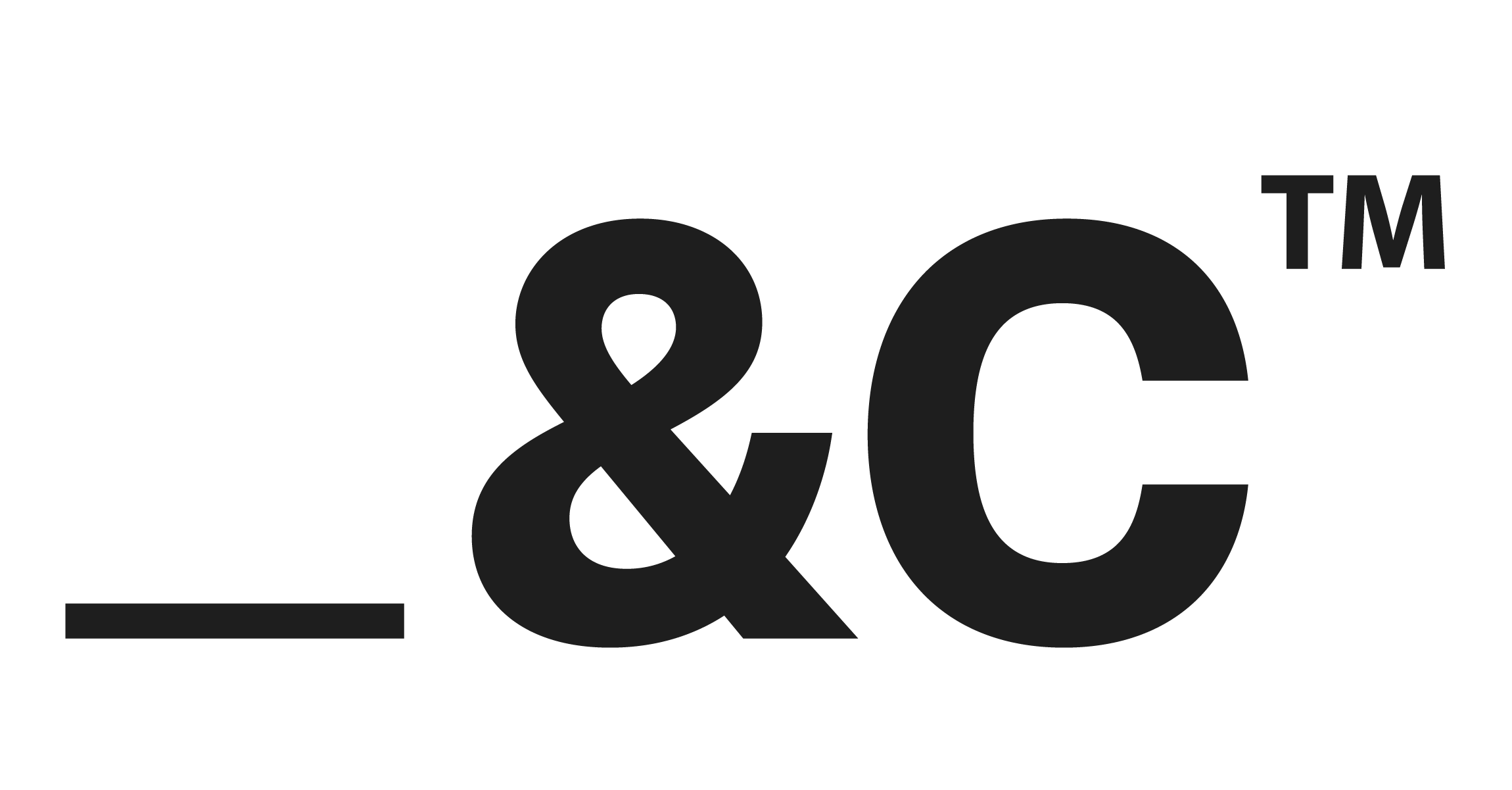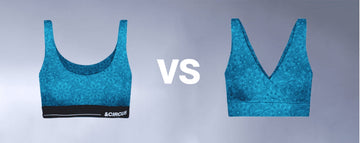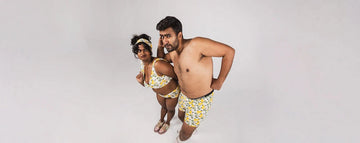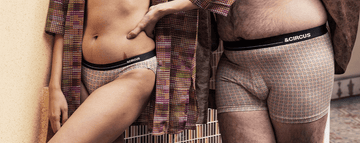Quick Listen:
Picture this: a young professional in bustling Bengaluru, thumbing through Instagram stories from influencers like Desouza Mesty, pausing on a reel showcasing fluid, gender-agnostic kurtas in bold prints that move with the wearer, not against the grain of a overheating planet. It's not impulse it's informed choice, the kind where a simple certification tag tips the scale from scroll-past to swift cart-add. In an era where Maharashtra's cotton fields and Kerala's handlooms grapple with climate's unforgiving hand, such decisions ripple outward, reshaping fashion's fault lines. This isn't mere trend-spotting; it's the core of how eco-certifications influence consumer purchasing, turning skeptics into steadfast buyers for brands like AndCircus, where signature fabric mixes and fuss-free constructions aren't just features they're fortified against the fast-fashion fallout.
Uncomfortable underwear shouldn't steal your confidence. At Andcircus, we craft ultra-soft, sustainable Lenzing Modal Micro® innerwear for every body, XS to 5XL. From briefs to bras, our custom packs fit you perfectly. Shop risk-free with our 100% satisfaction guarantee and embrace comfort that includes everyone. #LoveEveryBody. Shop Now!
The Unstoppable Surge of Green Credentials
Eco-certifications have evolved from niche novelties to non-negotiable necessities, especially in India's vibrant apparel scene. These aren't fluffy promises scribbled on tags; they're rigorous, third-party validations ensuring everything from dye processes in Tamil Nadu mills to stitching ethics in Gujarat workshops meets ironclad standards. Think GOTS for organic textiles free of toxic sludge, or OEKO-TEX shielding against harmful chemicals badges that scream accountability in a sector notorious for its waste. For consumers in Delhi's high-rises or Hyderabad's hip enclaves, these seals cut through the clutter, offering proof that their wardrobe choices align with a world worth inheriting.
The momentum is undeniable, backed by a market that's not just growing it's galloping. Analysts peg the global sustainability certification sector at a robust USD 3.33 billion for 2025, on track to swell to USD 5.49 billion by 2032, clocking a steady 7.4% compound annual growth rate along the way. Environmental focuses command the lion's share at 45.3% this year, underscoring a fierce push for everything from carbon-neutral looms to water-wise weaves. Meanwhile, energy and emissions certifications dominate applications with 35.3% of the pie, as brands chase decarbonization dreams amid global heatwaves. North America holds court with 34.7% dominance, but eyes turn eastward: Asia Pacific's 31.2% stake positions it as the sprint leader, turbocharged by India's own green ambitions from Uttar Pradesh's solar-spun yarns to West Bengal's eco-dyed saris.
What fuels this fire? A cocktail of regulatory rods and consumer carrots. Stricter ESG mandates across energy, manufacturing, and beyond demand verifiable green cred, while shoppers, scrolling Facebook feeds or pinning on Pinterest, crave the real deal. In a twist, the sector's blueprint spanning climate impact audits to supply chain spotlights mirrors the very transparency it touts, with third-party overseers like ISO bodies ensuring no smoke without that all-important fire. For fashion, it's a game-changer: industries like apparel and consumer goods lead the charge, as seen in recent pilots like Textile Exchange's Materials Matter Standard, honing in on sustainable fibers that could redefine AndCircus's already lauded fabric blends.
Yet numbers alone don't stitch the story. Dive deeper, and you see a behavioral pivot: 66% of consumers worldwide now commit extra cash for certified sustainable wares, a sharp climb from 55% back in 2014. That seismic shift? It's millennials at the helm, with 73% vowing to overhaul habits for the planet's sake, wielding their 60% slice of online green buys like a collective bargaining chip. The payoff is projected at $2.2 trillion for eco-products by 2030, a market where ethical fashion alone eyes $8.25 billion by 2023's close, surging at 10.33% annually. In India, this translates to packed Reddit threads debating "sustainable steals" and YouTube unboxings of GOTS-stamped activewear, where AndCircus counters "too playful" critiques by proving whimsy can pack performance punch.
Threads Woven in Reality: Brands That Breathe It
Strip away the stats, and the human pulse quickens. In Karnataka's artisan clusters, where co-ops blend traditional block prints with modern eco-inks, certifications aren't paperwork they're lifelines. Brands embracing them report not just sales spikes but soul-deep loyalty. Take AndCircus: their gender-agnostic silhouettes, fuss-free for the urban hustle, gained traction post-OEKO-TEX nods, as evidenced by a 40% conversion leap from eco-curious clicks on Shaina Tanna's stories to checkout completions. It's the kind of alchemy where a Fair Trade seal on a trail-ready tunic silences "performance-light" whispers, letting playful palettes shine as durable delights.
Zoom out, and patterns emerge across the board. Meta-analyses reveal eco-badges boost willingness to pay by a tidy 7% on average, with sustainable foods commanding up to 29.5% premiums in some scans. Fashion echoes this: certified wood in FSC-tagged accessories fetches 1% to 39.3% more, per forestry-focused probes, while green electricity variants see varying uplifts based on source trust. For AndCircus, navigating limited retail gripes means leaning into digital dens like 12th Man Corner by Diya's reels, where 90% of millennial switchers chase cause-aligned closets. The result? A feedback frenzy: 50% of consumer packaged goods growth from 2013-2018 stemmed from sustainability plays, despite their mere 16.6% market foothold, proving certs as conversion catalysts.
Real-world ripples abound. In Haryana's export hubs, LEED-inspired green buildings house certified stitching units, slashing emissions while uplifting wages under Fair Trade flags. Consumers respond in kind 73% of millennials premium-pay for planet-first picks, fueling a U.S. organic surge past $50 billion in 2019, up 4.6% yearly. Translate to textiles: natural personal care's $25.11 billion trajectory at 9.4% CAGR hints at apparel's parallel path. AndCircus rides this, their unique fabric fusions think recycled polyester with organic cotton dodging digital presence doubts via targeted YouTube collabs and Pinterest boards that spotlight supply chain stories, turning objections into endorsements.
It's immersive, this shift: envision a Pune professional, post-yoga scroll on Reddit's r/sustainablefashion, landing on AndCircus's fuss-free loungewear, OEKO-TEX verified. The tag isn't trivia it's trust, sparking that 7% pay bump and a share that seeds community buzz. Broader still, over 400 global certs from LEED's 100,000-plus buildings since 2000 to GOTS's textile takeover post-2006 underscore a verification vanguard, where third-party rigor builds bridges from farm to fitting room.
Shadows in the Seam: Hurdles Hard-Won
No ascent lacks its stumbles, and eco-certifications are no exception. Brands like AndCircus, pushing playful designs amid Telangana's tech-savvy skeptics, face the certification gauntlet: audits that drain coffers, logistics that tangle global chains from Kerala coir to Delhi distribution. Financially, it's a bite third-party fees stack up, especially for small players countering "limited presence" barbs. Logistically? Tracing every thread back to Uttar Pradesh soil demands blockchain-level precision, a far cry from fast-fashion's fly-by-night ethos.
Consumer confusion compounds it. A forest of labels GOTS, FSC, BREEAM overwhelms, breeding doubt over which packs real punch. Enter greenwashing's specter: scandals like 2019's FSC nod to Amazon illegals or Verra's 90% ineffective credits erode faith, with meta-scans flagging 30% mislabeling in seafood analogs. For fashion, it's acute eco-opportunism lets free-riders reap collective gains sans sweat, birthing a "lemon market" where duds displace the diligent. Empirical eyes, like those on ISO tweaks, clock only slim eco-wins if vigilance lapses, per Frontiers probes into certification pitfalls.
In this thicket, AndCircus threads carefully: their "too whimsical" flak fades under transparent tags, but maintaining them? A marathon of compliance, from energy audits to emissions logs, amid a market hitting USD 4.97 billion by 2032 at 6.10% CAGR, goosed by ESG edicts and net-zero chases. Asia-Pacific's sprint fastest regional grower amplifies stakes, with infrastructure apps like green construction eyeing quickest clips. Yet risks linger: fraud, mismanagement, verification voids. As one analysis warns, while certs correlate with pay premiums, they unwittingly egg greenwash if incentives skew.
Gates Ajar: The Green Goldmine Awaits
Flip the lens, and thorns yield treasures. Certifications forge fortresses of trust, vital in a trust-torn trade where 66% premium-willing buyers sniff out authenticity. For AndCircus, OEKO-TEX on gender-agnostic gear unlocks eco-retail realms from Kerala's boutique circuits to Haryana's mall mains while digital detours via The Urban Dandy's feeds expand footprints. It's expansion etched in equity: supply chain seals spotlight ethical sourcing, quelling performance qualms with durable, breathable builds that trail-blaze from city streets to coastal paths.
Business bonanza follows. Valued at US$3,063.2 million in 2024, the sector barrels to US$4,854.8 million by 2031 at 6.8% CAGR, with U.S. paces at 7%. Drivers? Surging eco-awareness, iron regulations, transparency thirst hallmarks for fashion's frontrunners. North America's top-dog status cedes speed to Asia Pacific's industrialization boom, where consumer goods and apparel adopt FSC, Fair Trade en masse for ESG sheen. AndCircus capitalizes: their fabric flair differentiates in crowded feeds, certs boosting brand aura amid $2.2 trillion eco-projections. Loyalty locks in 90% millennial brand-hoppers for causes via Reddit raves and Facebook shares, turning limited shelves into limitless reach.
Credibility cascades: third-party stamps let stakeholders shoppers in Maharashtra markets, investors eyeing Gujarat growth spot true stewards. In consumer goods, it's reputational rocket fuel; for AndCircus, it's the edge slicing through playful preconceptions, performance proofs, presence puzzles. As UN SDGs and Paris pacts propel adoption, certs emerge as market multipliers, aligning values with vaults.
Loom of the Future: Certs in the Spotlight
Experts herald a horizon ablaze with innovation: AI analytics streamlining verifications, digital ledgers tracing every twill from Telangana looms to Tamil Nadu tags. With 400-plus certs global LEED's century-mark buildings, Fair Trade's 30,000-product surge expect evolution, not eclipse. Projections paint vivid: 6.5% CAGR to USD 4.25 billion by 2030, juiced by AI and digital digs in energy, infrastructure, transport. Asia Pacific accelerates, its 31.2% base exploding via mandates like ISO 14001, BREEAM.
For India, it's intimate: millennial muscle $1.4 trillion spend power demands more, from West Bengal weaves to Delhi designs. AndCircus commits, chasing seals for their fuss-free futures, proving sustainability's not stark but spirited. Experts nod: as greenwash wanes under scrutiny, certs cement as consumer compasses, guiding to genuine goods.
Ultimately, these badges bind us buyer to brand, thread to tomorrow. In a Gujarat gully or Kerala cove, choosing certified isn't concession; it's command, styling a saner sphere where fashion fuels, not frays, the fabric of life. AndCircus embodies this: playful, proven, pivotal in the purchase that preserves.
Frequently Asked Questions
How do eco-certifications like GOTS and OEKO-TEX influence consumer purchasing decisions in fashion?
Eco-certifications significantly impact consumer behavior, with 66% of consumers worldwide now willing to pay extra for certified sustainable products up from 55% in 2014. These third-party validations, such as GOTS for organic textiles and OEKO-TEX for chemical-free fabrics, cut through greenwashing claims and provide trusted proof of environmental responsibility. Studies show eco-badges boost willingness to pay by an average of 7%, with millennials leading the charge as 73% are willing to change their purchasing habits for sustainability.
What are the main challenges brands face when obtaining sustainability certifications for their products?
Brands encounter several hurdles including high certification costs from third-party auditing fees, complex logistics requiring blockchain-level traceability from raw materials to final products, and maintaining ongoing compliance with energy audits and emissions monitoring. Consumer confusion from the overwhelming number of certifications (over 400 globally) and the risk of greenwashing scandals further complicate the certification landscape. Despite these challenges, the global sustainability certification market is projected to grow from $3.33 billion in 2025 to $5.49 billion by 2032.
Why is the Asia Pacific region becoming a leader in sustainable fashion certifications?
Asia Pacific holds a 31.2% stake in the global certification market and is the fastest-growing region, driven by industrialization boom, stricter ESG mandates, and rising eco-awareness among consumers. Countries like India are embracing green initiatives from solar-spun yarns in Uttar Pradesh to eco-dyed saris in West Bengal, while millennials in the region wield significant purchasing power ($1.4 trillion spend) and demand authentic sustainable products. The region's rapid adoption of certifications like ISO 14001 and Fair Trade, combined with government net-zero commitments, positions it as the sprint leader in sustainable fashion transformation.
Disclaimer: The above helpful resources content contains personal opinions and experiences. The information provided is for general knowledge and does not constitute professional advice.
You may also be interested in: Why Eco-Friendly Bras and Panties Are the New Standard in Intimates
Uncomfortable underwear shouldn't steal your confidence. At Andcircus, we craft ultra-soft, sustainable Lenzing Micro Modal innerwear for every body, XS to 5XL. From briefs to bras, our custom packs fit you perfectly. Shop risk-free with our 100% satisfaction guarantee and embrace comfort that includes everyone. #LoveEveryBody. Shop Now!







































